More articles Saturday 19 August 2017 8:55pm
Juno Dawson & Reni Eddo-Lodge speak on Gender, Race and Equality at the Book Festival
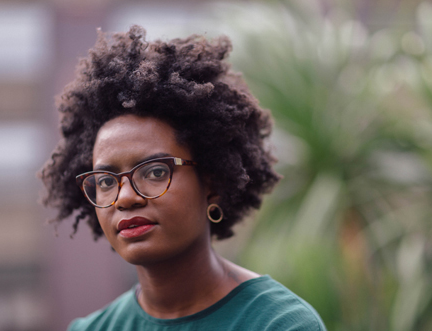
Author and activist Juno Dawson believes trans issues are viewed in the way lesbian and gay rights were in the 1990s, and that “discourse will shift” in twenty years’ time.
“I think with trans issues we’ve got where we were with lesbian and gay stuff in the ‘90s,” she told the Book Festival, “where you still had people comparing George Michael to a paedophile and [saying] ‘oh, be careful, don’t share a cup with someone who’s HIV+ because you’ll get HIV’, things like this, a huge witch-hunt discourse.
“It feels slightly that way now and, somehow, we’re back [to] bathrooms. Again, in the ‘80s and ‘90s it was coming after gay men in bathrooms, now it’s trans men and trans women, so I hope in another 20/25 years, discourse will shift.”
Dawson, previously James Dawson, published The Gender Games earlier this year, her first book aimed at adults. She was in discussion with Reni Eddo-Lodge, author of Why I’m No Longer Talking to White People About Race, an investigation into what it means to be a person of colour in Britain today.
Commenting on current events in the United States, Eddo-Lodge said she found those who argued that “we can’t erase history” by removing Confederate statues “really frustrating”. “That shows to me the crux of my deep frustration with whiteness as a dominant ideology,” she added, “which is a real commitment to being wilfully ignorant about basically some inalienable facts.
“[It is] wilfully covering up the uglier part of that history [by saying] ‘ah well, in order to embrace history and celebrate it, we just have to be completely uncritical’: is that where we’re at now? I thought we understood that human beings and their actions were complex? But suddenly when it comes to issues to do with racism or slavery, it’s like ‘oh you can’t wipe that away’. No, we’re trying to open up the discussion.”
Dawson also made the point that trans people were “nothing new”. “There are trans people recorded in ancient Greek poetry, ancient Greek pottery, going way back to ancient civilizations,” she said, “and yet sometimes when you read stuff it feels like it’s something we’ve come up with recently, like ‘hi, new for 2015, trans people!’
“Because we’ve made such small, such miniscule inroads into the media, and into politics…it’s super recent. I think people are unsettled, but we’ve been around since culture has been recorded…I think it’s about visibility. To me, trans people were so invisible to me until I was in my 20s I didn’t know I was trans, that’s how invisible it was.”

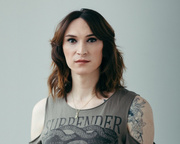
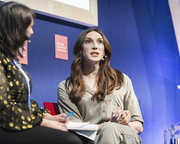
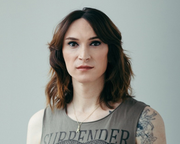
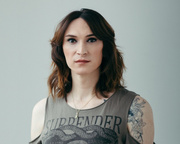
 Major new partnership with Celtic Connections
Major new partnership with Celtic Connections 

